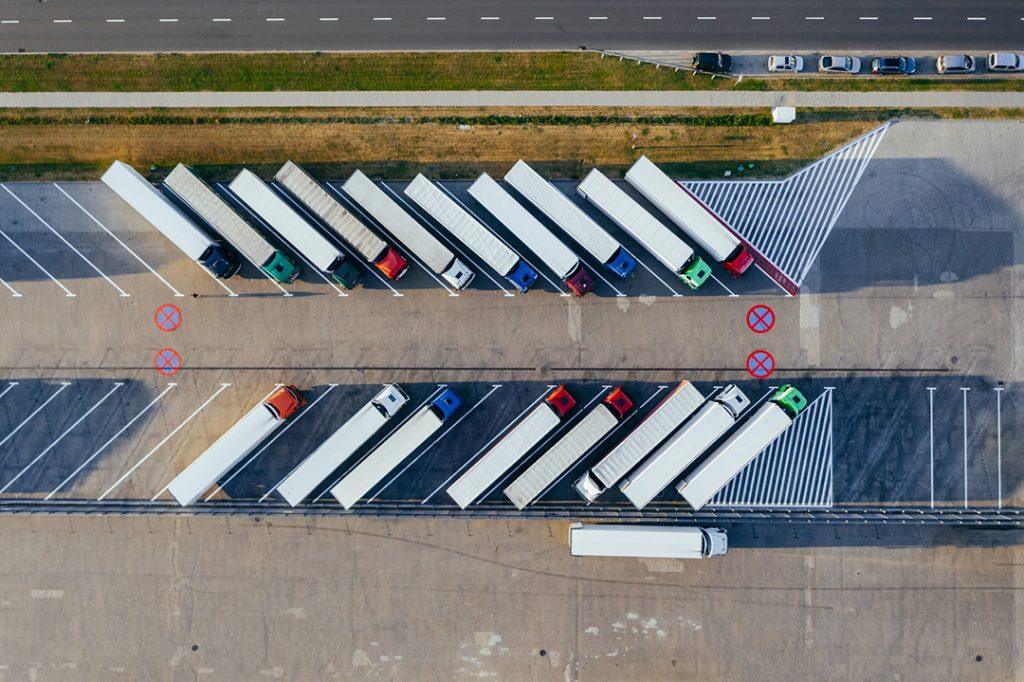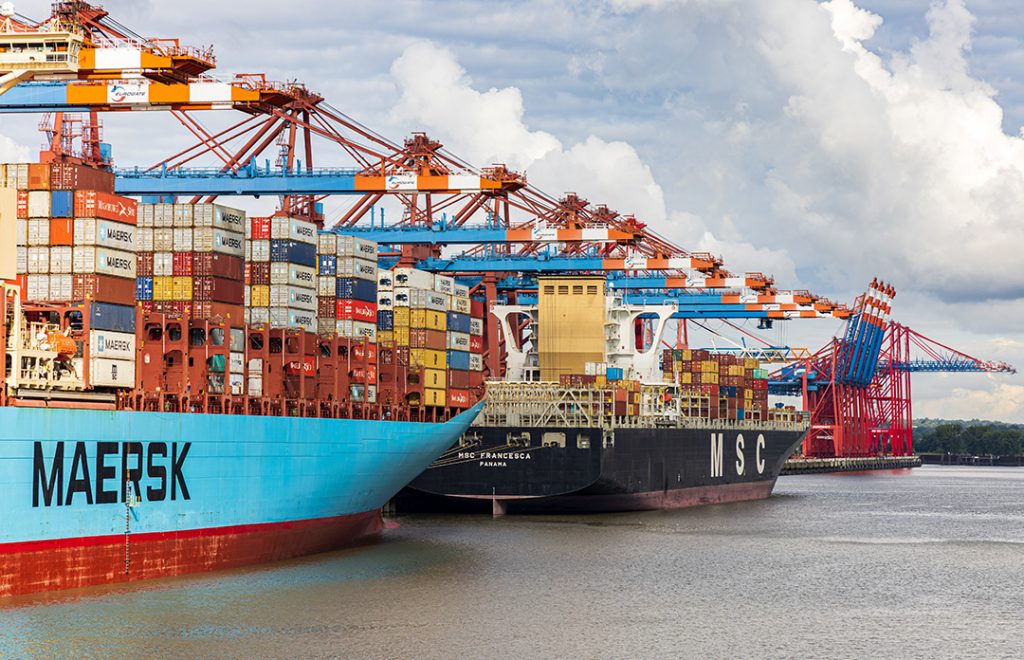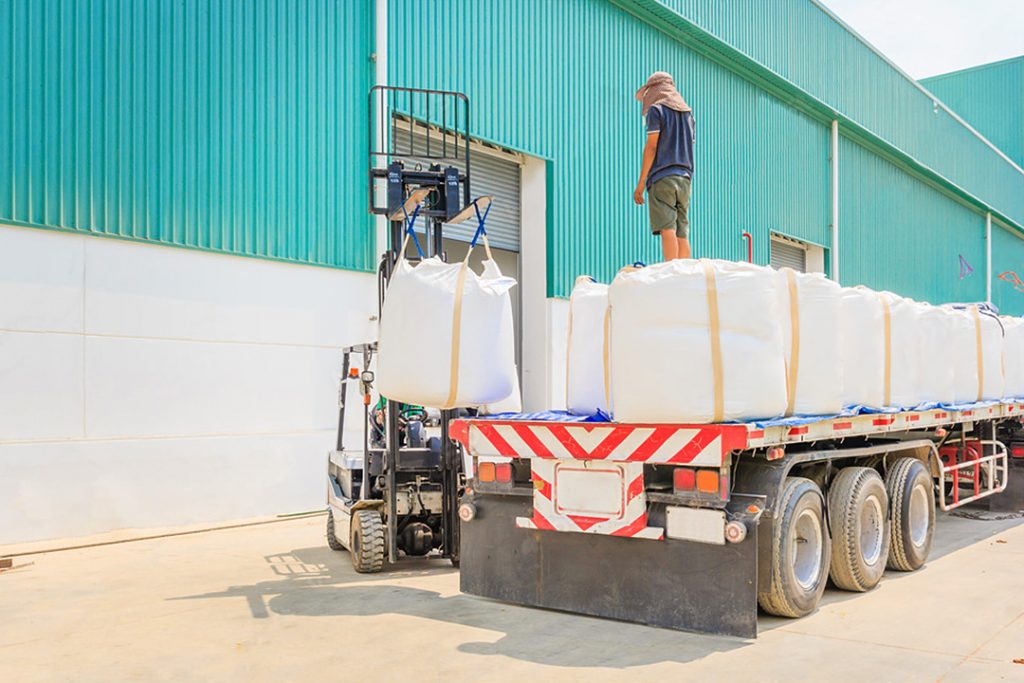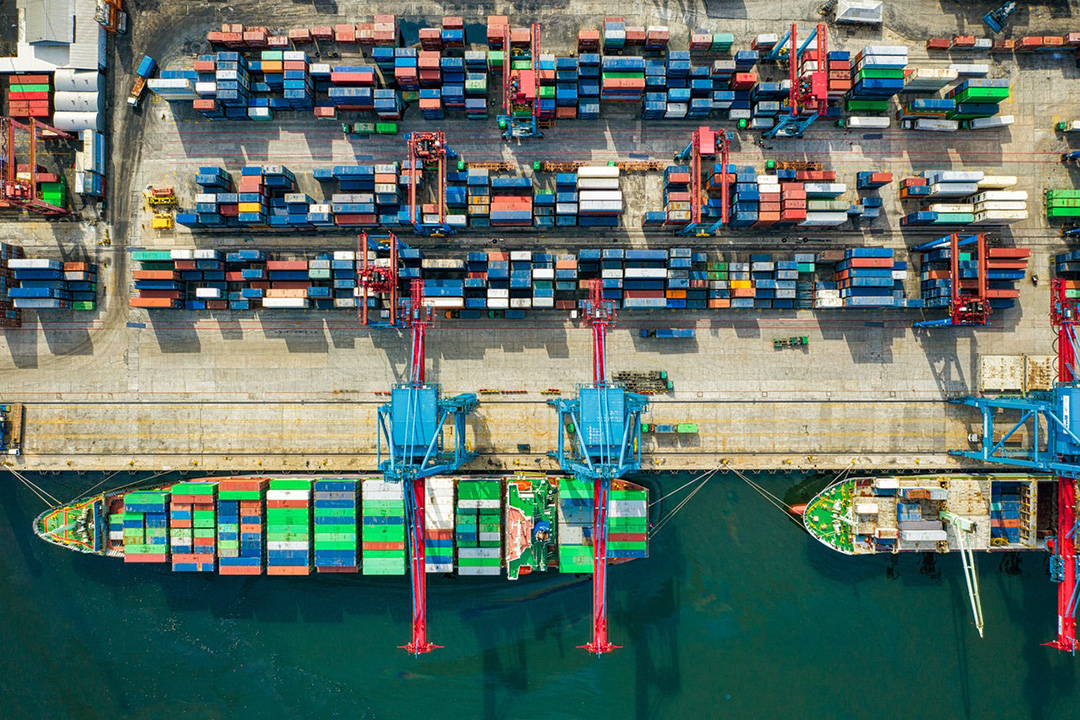Bulk commodities export must be done safely and effectively, but not all packaging solutions are made equal. Bulk bags, also known as flexible intermediate bulk containers (FIBCs), are a preferred packaging option for exporters in a variety of industries, ranging from chemical compounds and building materials to agricultural commodities and mineral concentrates.
Their extensive use for air, sea, rail and road freight highlights their strength, adaptability and exceptional capacity to bear high loads. Custom Bulk Bags (CBB) is a leading manufacturer and supplier of bulk bags in South Africa. We produce up to 3.5 million units every year, and our products can safely hold between 500kg and two tonnes per bag.
Choosing the right FIBC supplier will have a big impact on exporters’ bottom lines when negotiating intricate international supply chains. Working with a local bulk bag manufacturer is often the most cost-effective option. Let’s find out why…

The financial benefits of bulk bags for exporters
With a superior combination of affordability, efficiency, and flexibility, FIBCs are an alluring economic option for exporters that can directly boost profitability. Here are several reasons to illustrate the argument:
- Outstanding affordability per unit volume – FIBCs are significantly less expensive per unit volume than conventional bulk packaging options. Their comparatively affordable material and manufacturing costs are the source of their inherent cost-effectiveness. Bulk bags are easier to manufacture on a large scale and need fewer raw materials due to their enormous capacity, unlike rigid containers or drums. For exporters, this directly means lower procurement costs, freeing up more funds for other vital areas of their business.
- Reduced transportation costs – The lightweight and space-saving features of bulk bags for export are two of their biggest cost benefits. An empty FIBC, which normally weighs only around one kilogram, can be flat-packed to minimise space. This makes it possible to convey a significantly higher density of empty packaging to the filling location. In addition, this light weight also minimises the “dead weight” being transported, lowering freight costs for all modes of transportation, including air, sea, rail, and road.
- Removal of secondary packaging – A lot of traditional packaging techniques call for extra secondary packaging (such as crates or shrink wrap) or the use of pallets for handling and stability. The sturdy construction and built-in lifting loops make bulk bags adequate for transport without these pricey extras. This lowers transportation costs and expedites loading and unloading procedures at ports or depots.
- Optimised warehouse and storage space – As with transportation space, an exporter’s facility needs a lot less storage space because empty bulk bags can be folded flat. For businesses with limited storage, this is a huge advantage because it allows them to have more packaging inventory on hand, guaranteeing continuous production flow without having to pay extra for off-site storage. Bulk bags are made to stack efficiently when filled, making the most of container capacity and vertical warehousing space while in transit.
- Reduced product loss and damage – Maintaining product integrity while exporting is essential. The sturdy, sealed environment that bulk bags offer shields the materials within from spills, moisture, and contamination. This greatly reduces the amount of product loss brought on by environmental exposure or damage over lengthy transport periods and numerous handling locations. This protects the exporter’s finances and reputation by reducing expensive claims or reshipments.

Comparing bulk bags with other packaging options
Bulk bags surpass many other conventional packaging options in a number of ways. Cardboard boxes and Gaylord boxes are useful for smaller quantities or volumes, but they are prone to moisture damage, have a reduced weight capacity per unit, and often need pallets for stability, which adds weight and expense. In general, they are not as resilient to frequent rough treatment while travelling abroad.
Steel drums are great for valuable powders or some liquids, as they provide exceptional protection. But they weigh a lot more, cost a lot more per unit, don’t collapse when empty (which takes up valuable return space) and are harder to clean and repurpose for other products. Additionally, their cylindrical shape creates an inefficient use of container space.
Rigid plastic or metal containers are reusable and provide good protection. However, they cost a lot more up front, weigh a lot, and take up a lot of room even when they are empty, which raises the logistics of returning them. FIBCs provide a more adaptable and cost-effective option for dry flowable materials, even though they are appropriate for some liquid or extremely sensitive applications.
Decision-makers in export sectors must consider how packaging choices affect operational effectiveness, supply chain resilience, and even brand impression in addition to direct costs. For seamless customs clearance and secure delivery, it is essential to understand international shipping rules (such as ISO 21898 for non-dangerous items and UN certification for hazardous commodities). It is also non-negotiable to make sure your packing satisfies these criteria.

A local partner for exporters
CBB is a leading manufacturer and supplier of FIBCs in South Africa. Exporters benefit greatly from our local expertise and growing manufacturing capacity. We provide affordable pricing without international freight markups on empty bags, quick response times, and unmatched client service since we understand the region’s particular logistical issues and regulatory environments.
To ensure your compliance with international shipping laws, we take pride in producing premium bulk bags that meet strict international quality and safety standards, including ISO 9001 certification and UN-certified designs for hazardous goods.
Our experience includes tailoring bulk bags to specific requirements for international travel, such as baffle bags for maximum container loading efficiency, specialised liners for moisture-sensitive products, or improved UV protection for lengthy sea voyages.
By working with Custom Bulk Bags, exporters acquire a dependable partner dedicated to providing affordable, superior, and legal bulk packaging solutions that strengthen their competitive advantage in the international market. For more information about our bulk bags or to get advice on the ideal designs, please contact us today.
___
Custom Bulk Bags is a leading South African manufacturer of woven polypropylene bags for various industries, such as mining, chemicals and food. We are a Level 2 B-BBEE manufacturer and supplier and fall under the ownership structure of Deneb Investments Limited. For more information on our products, contact sales@custombulkbags.co.za.
